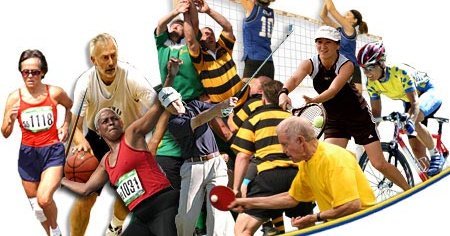A decade ago, a review study funded by the European Commission affirmed this trend by drawing on data from all (then) 25 Member States. The study led to discussions between Member States’ Sport Ministers within what was then an informal framework, including the adoption of EU Physical Activity Guidelines defining what policies are needed to enable citizens to choose an active lifestyle. The trend has not been reverted yet, as indeed two Eurobarometer surveys confirmed. Even within a five-year period (a mere half-decade), self-reported participation in sport and physical activity continued dropping, although a very small increase in membership in health and physical clubs was reported . There is reason for concern and there is a need to use public policies better to ensure people are physically active. Sport policy may be the single most important policy field for taking action.
In the intermittent years, physical inactivity and overweight/obesity had become reframed as sports policy issues, in addition to their obvious public health relevance. This happened as an outflow of the realisation that the increase in overweight/obesity was (and is) not caused solely by inappropriate diets. Some research has indeed indicated that energy intake may have been higher in the 1950s, when higher daily levels of physical activity still allowed burning excess calories . Apart from the evident need to ensure nutritionally appropriate diets, a case has been made for redressing the balance between energy intake and energy consumption via an increase in physical activity. The HEPA (health-enhancing physical activity) concept promoted by the World Health Organisation (WHO) includes sport but also other forms of physical activity such as active commuting (cycling and walking). By the time the EU Physical Activity Guidelines had been adopted, the HEPA concept had become a cornerstone of EU sport policy debates which, however, could only take place on an informal level for as long as the EU did not have a formal, Treaty-based sport policy mandate.
With the entry into force of the Lisbon Treaty, an amended Article 165 of the (renamed) Treaty on the Functioning of the EU (TFEU) introduced the possibility of formal policy cooperation on sport policy matters between Member States within the EU framework. Though Article 165 does not allow the EU to pass any legally binding measures (no harmonisation of national rules), this new framework has already been used to adopt political initiatives, including a Council Recommendation “on promoting health-enhancing physical activity across sectors” . In so doing, EU Member States committed themselves to compare and coordinate their national policies under a monitoring framework using indicators based on the EU Physical Activity Guidelines, with technical assistance from the Commission and the WHO. While the HEPA concept points to wider policy areas, the initiative was adopted by Member States’ Sport Ministers, making a focus on sport policies natural. This happens at a time when legacy discussions are rife both in relation to the hosting of Olympic Games as well as the football Euro and World Cup. “White elephant” discussions surrounding the Athens Olympics and the Euro in Portugal had now died out before Brazil started attracting attention on account of its organisation of the World Cup and Summer Olympics.
While much can (and should) be done in relation to public health, and while physical activity can (and should) also be strengthened outside of formal, competitive sports, sport policy ought to be part of the equation. Not only does sport have the potential to reach large parts of the population: through its playful character it carries important incentives to be physically active. Provided that the individuals concerned can take an interest in the games offered, playing games can under some circumstances yield better health-promoting results than more mechanical exercises such as those performed using fitness equipment. This was reported in a Danish study regarding mainstream men playing recreational soccer and the findings were largely corroborated by an English study.
On the other hand, not everyone may be interested in the rules of the game and the commitments required to play team sports may be insurmountable for some. The increased flexibility of daily schedules make visits to a fitness centre more attractive (and realistic) to an increasing part of the population. At any rate, the subjective attractiveness of the available offer is crucial: what counts is what matters to individual people. This poses a challenge in relation to the task of following up on Member States’ HEPA commitments. Developing sport policy is a necessity in relation to strengthening physical activity as a tool for individual and collective well-being, yet it must happen in such a way that people feel inclined to take up the offer and get active.


Follow the comments: |
|
